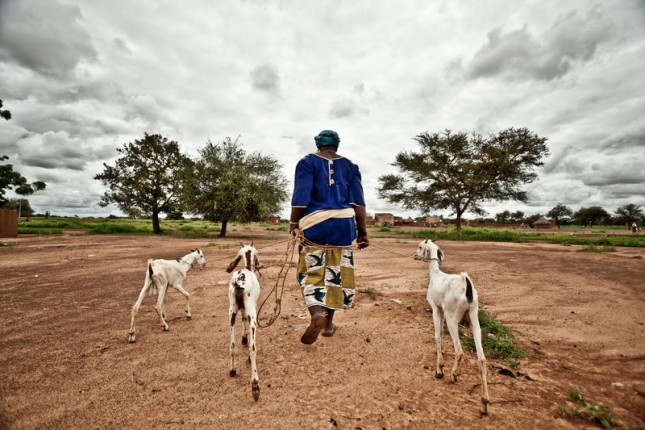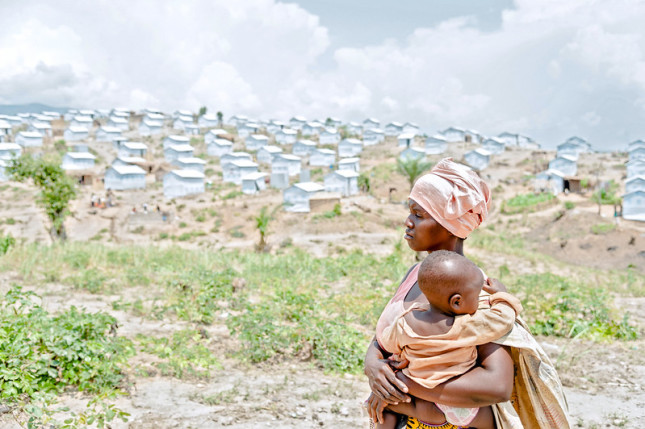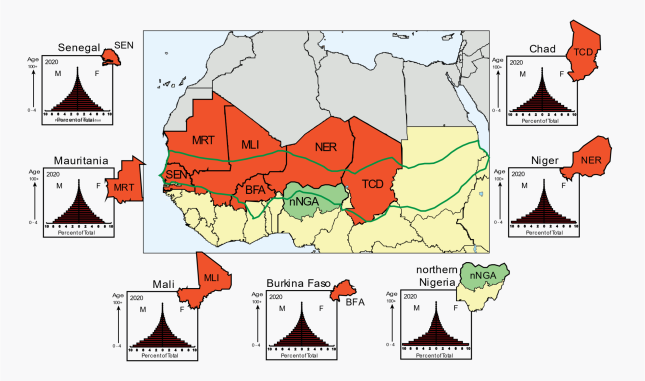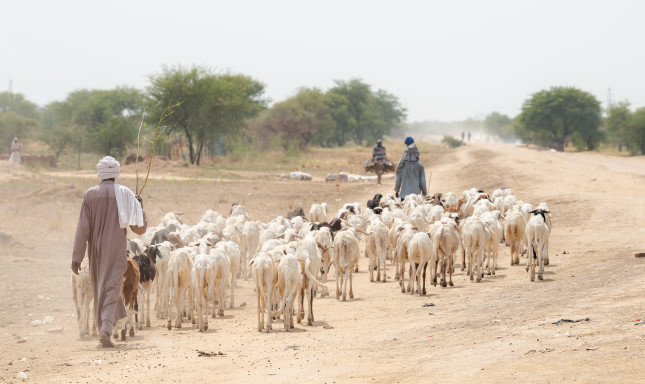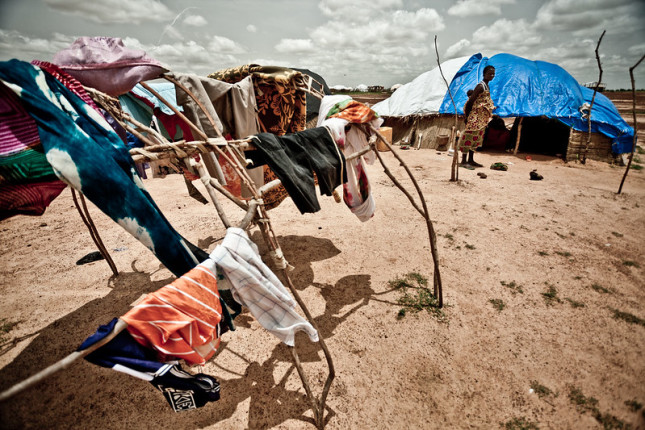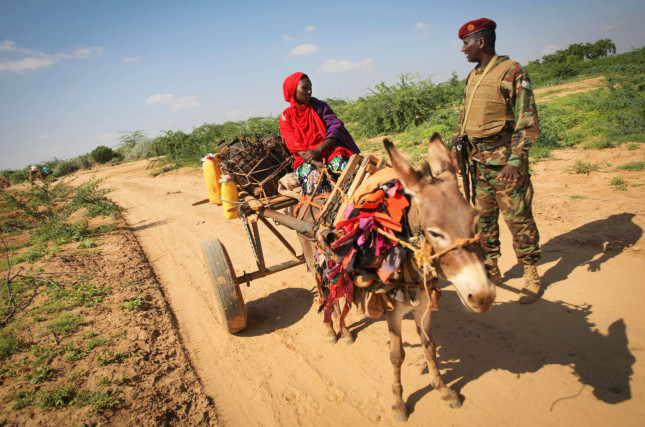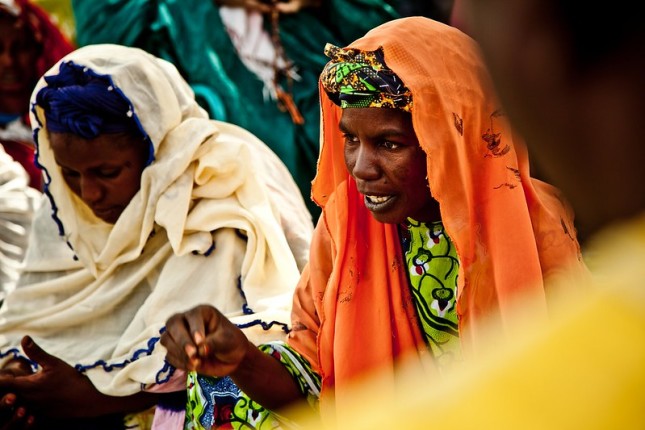-
Arms Are Not Enough: Solutions for the Sahel Must Consider Climate
›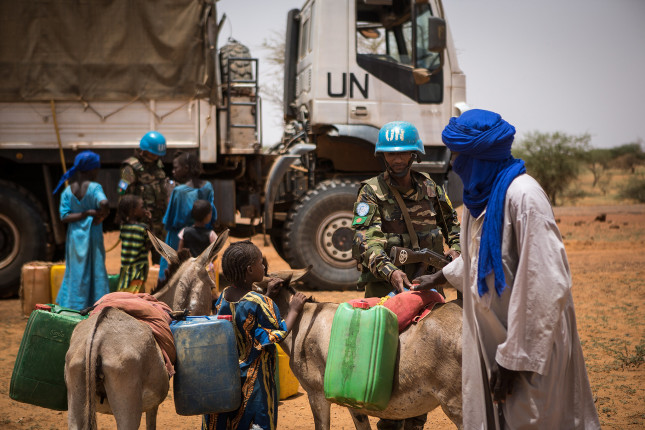
On February 25, Nigeria will begin voting for its new president in one of the most tightly fought elections in decades. And the most likely winner has already set down a marker in his campaign. “You can’t be talking about climate change when people are taking cover from bombs,” observed Nigerian presidential hopeful Peter Obi.
-
What’s in a Name? Making the Case for the Sahel Conflict as “Eco-violence”
›
The Sahel region of Africa is a semi-arid, arc-shaped landmass that stretches 3,860 kilometres from Senegal across portions of Mali, Burkina Faso, Niger, Nigeria, Chad, and even Sudan. It is also the most neglected and conflict-ridden part of the planet, according to the Norwegian Refugee Council.
-
New Security Brief | Converging Risks: Demographic Trends, Gender Inequity, and Security Challenges in the Sahel
›
Security conditions in the Sahel are rapidly deteriorating. Since 2016, the region has witnessed a 16-fold increase in terrorist attacks. In Burkina Faso, Chad, Mali, Mauritania, and Niger, 10.5 million people are facing starvation, and with climate-related disasters increasing and intensifying in the region, food insecurity is projected to rise. Against this backdrop, rapid population growth is outpacing governments’ ability to provide access to basic services. These pressures have transformed the central Sahel into the epicenter of a forced displacement crisis, with dire long-term and global humanitarian consequences that reverberate well beyond the region’s borders.
-
Youthful Demographic Conditions Could Push the Sahel to an “Afghanistan Moment”
›Africa in Transition // Guest Contributor // February 8, 2022 // By Richard Cincotta & Stephen SmithThe countries of the Western Sahel find themselves in the tightening grip of a set of mutually reinforcing crises. These include deepening seasonal food insecurity and surges of food-aid dependency, widening income inequalities, widespread childhood stunting, low levels of education attainment and pervasive unemployment, as well as acute political instability and a rapidly growing Islamist-led insurgency that has already displaced some 2.5 million people across the region. In our recent report, What Future for the Western Sahel? The Region’s Demography and Its Implications by 2045, (published by the Atlantic Council’s Scowcroft Center for Strategy and Security), we argue that, unless the Sahelian states focus on reversing the underlying conditions that sustain high fertility—the cause of a persistently youthful and rapidly growing population—they will likely not be able to resolve these crises in the foreseeable future.
-
Conflict in the Sahel Likely to Worsen as Climate Change Impacts Increase
›
Currently there isn’t a lot of good news coming out of the Sahel, the area in Africa that borders the Saharan desert to the north, the Sudanian Savannah to the south, and stretches across the continent. Multiple raging insurgencies, especially in the western part of the region, fuel a news cycle of offensives and counter offensives, responses and massacres.
According to the damning new ‘code red for humanity’ report from the Intergovernmental Panel on Climate Change (IPCC), the news from the region isn’t likely to get better any time soon.
-
Building Resilience in the Sahel in an Era of Forced Displacement
›
“The impacts of displacement present major challenges at every level of decision-making, but the opportunities for interventions that build resilience to climate change, foster social cohesion, and address gender and other disparities—well they’re also very real as well,” said Ambassador Mark Green, President, Director, and CEO of the Wilson Center, during his opening remarks at a recent event hosted by the Wilson Center and Population Institute to explore innovative approaches to addressing the underlying drivers of forced displacement in the Sahel.
-
Why We Need a Climate Security Course-Correction for Stability in the Sahel
›
Not only is the Sahel highly vulnerable to the impacts of climate change, but it is also one of the regions where climate change is most likely to undermine security and trigger violent conflict. Now more than ever, climate security risks must be effectively integrated into stabilisation and peace operations in order to achieve stability in the region.
-
Investing in Girls and Women Could Set Stage for Peace, Development in Sahel
›
The coronavirus pandemic has people throughout the world pondering how humankind should respond to a public health crisis. While individual countries are managing the crisis with varying degrees of success, we can all agree that the Covid-19 pandemic is commanding the international community’s attention. By contrast, it is much harder to get the world to care about the long-term public health crisis unfolding in the West African Sahel.
Showing posts from category Sahel.


